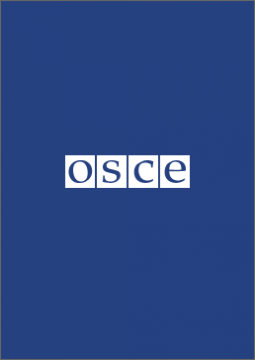
Accreditation of Foreign Journalists in the OSCE region 2016
Accreditation can be crucial for journalists because it helps them to properly serve their functions of “public watchdogs.” Performing journalistic duties outside home countries is often a considerable challenge for media professionals, particularly if their have to work in dangerous zones such as areas of military conflicts or disasters. However, accreditation often becomes a tool of control over the flow of information. Over the last few years, the OSCE Representative on Freedom on the Media expressed particular concern on abuses by accreditation schemes for foreign journalists that have become more frequent recently. The report focuses on both theoretical and practical issues of accreditation. It examines international standards and scholarly approaches to clarify the legal nature of accreditation and to explore the specifics of accreditation for foreign journalists. The report also studies accreditation rules for foreign journalists of ministries of foreign affairs in a number of the OSCE participating States. It reviews positive and negative practices of accreditation and sets forth recommendations on how to bring accreditation rules for foreign journalists in line with international standards.
The report reveals that accreditation rules for foreign journalists in some participating States are often interpreted as a work permit and are thus inconsistent with international standards on freedom of expression. Experts on international media law and freedom of expression generally agree that accreditation is necessary in connection with access to places with limited capacity or closed places, including dangerous areas or official events. Any limitations of accreditation should comply with the threeprong test established in Article 19(3) of the International Covenant on Civil and Political Rights and Article 10(2) of the European Convention on Human Rights. The report notes that international standards make a minor distinction between accreditation for foreign and national journalists, which grant additional privileges to foreign journalists because of the specifics of their professional activities outside their home countries. These privileges involve receiving multiple-entry visas, permits for staying, assistance in travelling and the like. If foreign journalists do not need such additional privileges, accreditation should not be necessary. The report provides the following main recommendations: - Accreditation should provide privileges and improve working conditions for journalists in line with the main OSCE agreements, including the Helsinki Final Act; - Accreditation should not be a precondition to obtain a visa or to enter a country; - Accreditation rules should guarantee multiple-entry visas for accredited foreign journalists and multiple-entry long-term visas for journalists with permanent accreditation; - Freelancers should have the right to be accredited; - Accreditation rules should be clear and transparent, in particular, as to the terms and conditions for receiving accreditation as well as visas. This also concerns legitimate grounds for accreditation refusals and withdrawals; - Accreditation rules should not contain excessive obligations, such as the disclosure of the amount of salary, journalistic pseudonyms or purposes of visits; - Accreditation should not serve as a tool to control content; - Accreditation should not be used as a sanction or restriction in response to media propaganda or other constraints.
Tags: Safety of journalists OSCE Member StatesThe content of this article can be used according to the terms of Creative Commons: Attribution-NonCommercial 4.0 International (CC BY-NC 4.0) . To do so use the the wording "this article was originally published on the Resource Centre on Media Freedom in Europe" including a direct active link to the original article page.

